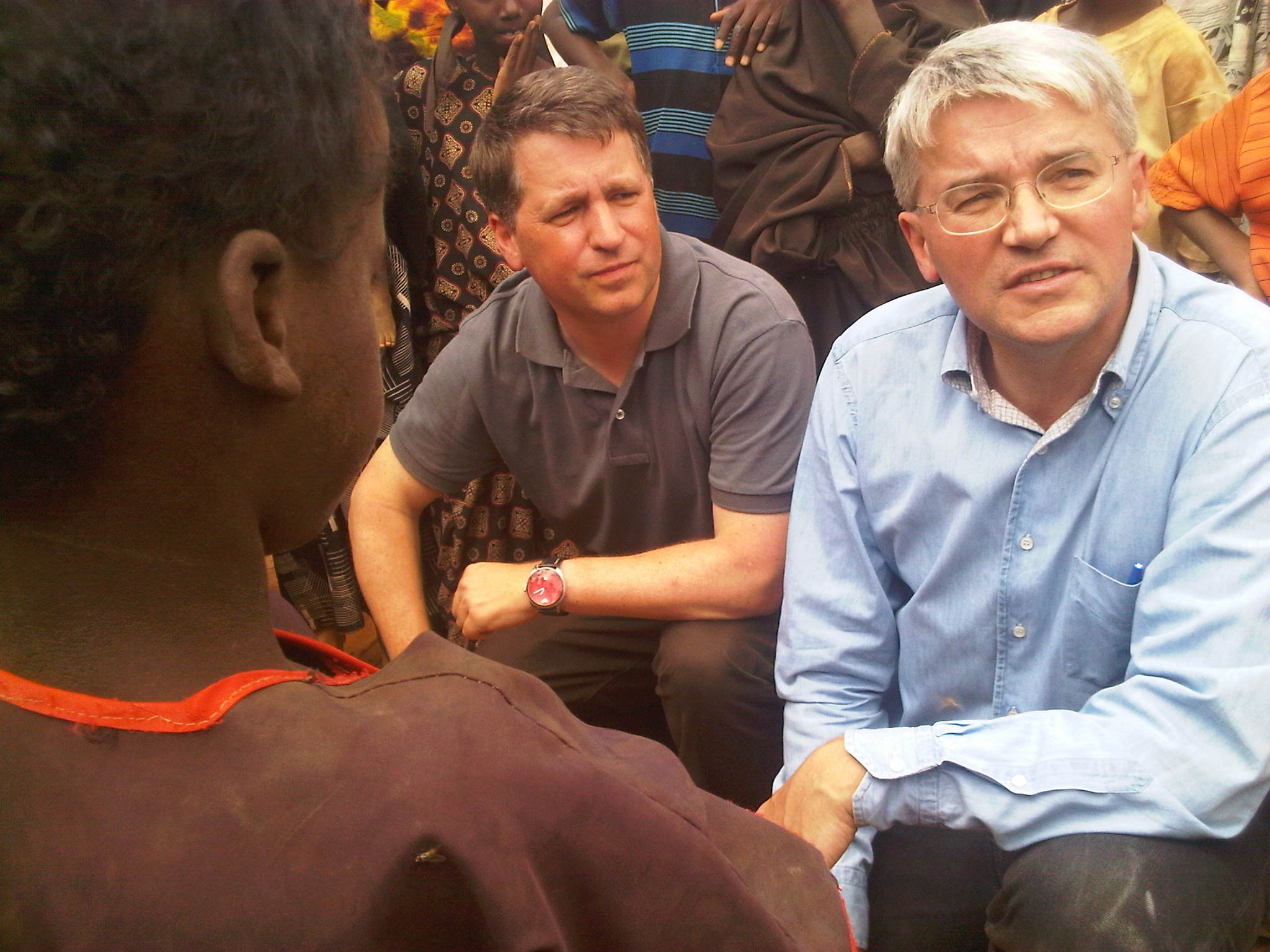
Europe's Migrant Crisis
Sixty million people are currently looking for a country to call home. Contributor MATTHEW FLACKS talks with Secretary of State Andrew Mitchell about the largest migration in recorded history

Secretary of State Andrew Mitchell via Wikipedia
The numbers are alarming to say the least. ¼ million refugees crossed the Mediterranean Sea in October. ¾ million tempted the journey just this year. And of the many millions who’ve sought political asylum from war-torn Africa, Syria, Afghanistan and beyond since 2012, thousands have lost their lives along the way. A pilgrimage of biblical proportions, the European Migrant Crisis of 2015 is considered the largest mass migration since World War II, and, with nearly 60 million people now displaced in the current exodus, is considered the largest migration in recorded history. Turning them away confronts the veracity of a democracy, the moral compass of Western Europe, and the very integrity of our human experience. In search of useful directions and needed resolutions, I recently spoke with Her Majesty’s Fmr. Secretary of State for International Development, Andrew Mitchell.
As a former British Cabinet Minister, Andrew Mitchell was responsible for promoting development overseas, particularly in developing countries, and with a budget of £11.4 billion says of the Migration Crisis “Funds should be directed to safe havens on the doorstep of the Syrian conflict so that those fleeing are not entirely displaced and can remain with fellow refugees in a secure environment.” He echoes The European Commission’s recent pledge of £1.3 billion to Africa that intends to a) address the economic and security problems that cause people to flee, and b) to persuade Africa to take back their own expatriates. The Secretary continues. “Such camps would prevent the displaced from coming to the bosom of the European Union in the first place. You cannot set up Syria on a new continent. The real solution here is not to take hundreds of thousands of people, but rather to resolve the Civil War in Syria."
If Foreign Aid is the United Kingdom’s solution to the Migrant Crisis, we’ve only to look to their Special Relationship with the United States for its alchemy. The Marshall Plan proffered $13 billion ($130 billion in today’s money) to rebuild Western Europe in the aftermath of WWII. But the seemingly altruistic aid came with some rather self serving conditions. The United States needed a trading partner and political alley at a time when communist parties in Italy, France and beyond were losing faith with capitalism. Mandating trade regulations, removing interstate barriers, and eradicating tariffs equated to the moment in time when Britain surrendered its crown of World Power to America.
Isolationism is another foreign policy institutionalized by leaders who believe that their nation’s interests are best served by keeping the affairs of other countries at a distance. One possible motivation for limiting international involvement is to avoid being drawn into dangerous and otherwise undesirable conflicts. But there may also be a perceived economic benefit from avoiding international trade agreements and other mutual assistance pacts. As evidenced by political history in China, North Korea and Kosovo, Isolationism can lead to the world's most Authoritarian regimes by denying the influx of ethnic, religious and philosophical diversity.
Despite the seemingly practical nature of such a policy, those attempting to find safety, solace and peace away from war-torn cities like Damascus, Aleppo and Homs are nevertheless fleeing, and consequently being met with rising fences on the borders of countries such as Hungary, Austria and Slovenia. How will safe havens help them? “Displaced people ultimately want to return to their homeland,” says Mitchell, though it’s difficult to find a refugee who shares this belief. He advocates Kofi Annan’s Six-Point Peace Plan for Syria, but doesn’t mention that Annan himself stepped down as the UN-Arab League mediator due to Syria’s failure to accept or implement the plan.
Conversely, Germany has shown great leadership in unreservedly welcoming refugees despite EU chiefs ordering them to be tougher on migrants and tighten border controls. “The UK has contributed more finance to operations on the ground than all the other EU nations combined,” Mitchell says, but history reminds us that creating ghettos for displaced peoples is an inapposite solution to a malevolent political disaster. While leaders squabbled and jostled for influence during WWII, the economies of European countries were collapsing. We wax lyrical about the concern of Russia, Iran, and the Arab states, but the stark reality remains: over 60 million displaced people are ‘Asylum Shopping’ the politico-economic confederation of the European Union. Had the United States’ Immigration Policy following World War II responded to Jewish Refugees in this fashion, the Brookings Institute estimates that fatalities of migrants would probably exceeded the victims of the Holocaust.
A picture of a dead child washes up on Greek shores and pricks the human consciousness. It could just as easily be an image from Vietnam or WWII as the European Migrant Crisis. In fact, the politics were eerily similar. All wars produce Freedom Fighters, Asylum Seekers, and horrific images of the Fallen. Indeed, 60 million people have been looking for a home this year. But who are they? Based on official data from Germany’s Foreign Office, most are young men under the age of 40. Most are husbands and fathers. And all believe that mankind has a right to life, liberty, and the freedom from persecution. As one WWII refugee Albert Einstein once said, “A bundle of belongings isn’t the only thing a refugee brings to his new country.”
Archives








